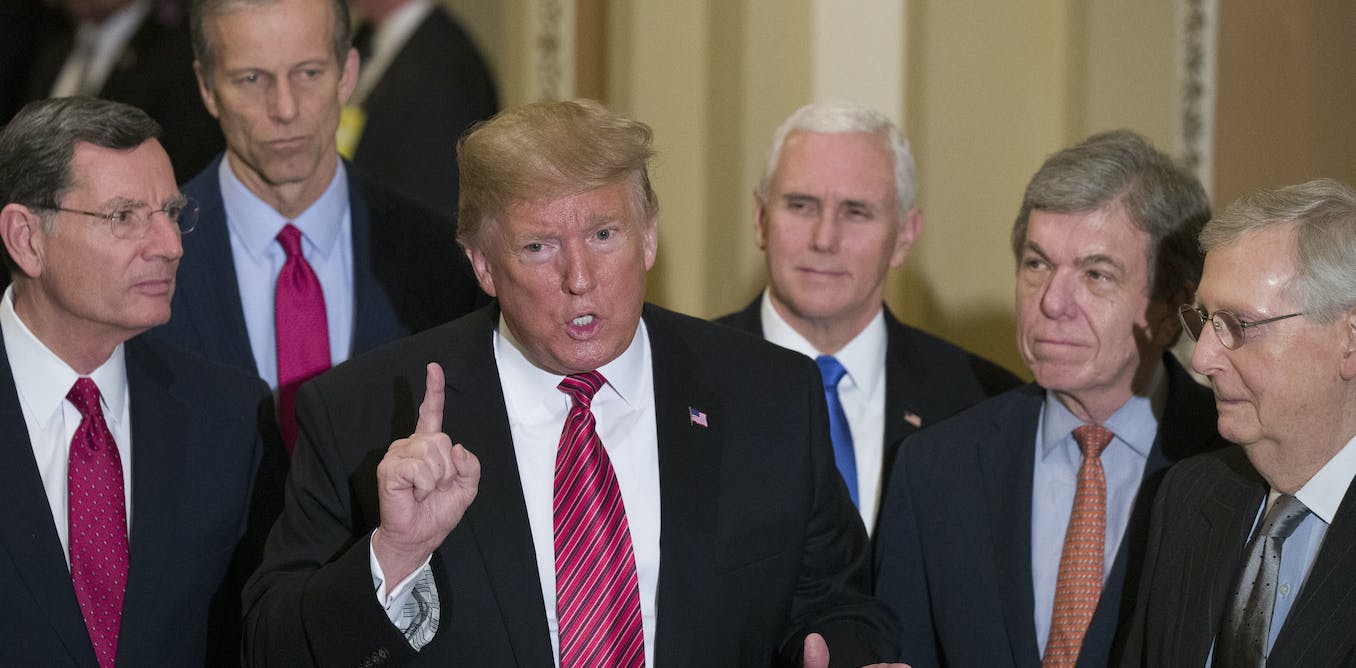According to political science research, a second term for former President Donald Trump is likely to be even more damaging to American democracy than his first term. The danger lies in the shift of power dynamics within the Republican Party, which has become a personalist party focused on promoting Trump’s personal agenda rather than advancing specific policies. Personalist parties are a threat to democracy because they lack incentives and the ability to resist their leader’s efforts to amass more power. From 1990 to 2020, leaders backed by personalist parties in countries worldwide have undermined democracy from within.
There are three reasons why personalist parties are harmful to democracy. Firstly, party elites in personalist parties are loyal to the leader rather than the party itself. They view their political success as intertwined with that of the leader and are more likely to support the leader’s agenda, even if it is harmful to democracy. Secondly, elites in personalist parties endorse the leader’s actions, signaling to citizens that these actions are compatible with a healthy democracy. This leads to supporters of personalist parties going along with efforts to dismantle democracy, even if they care about democratic values. Lastly, leaders of personalist parties polarize society by demonizing their opponents. This deepens affective polarization and allows the leader to take actions that undermine democracy with the political support of their supporters.
The Republican Party has become a personalist party under Trump’s leadership. Traditional party elites have been sidelined, and loyalty to Trump has become the main qualification for Republican candidates or appointees. The personalist nature of the party means that if Trump were to win a second term, he is unlikely to face resistance from the party on any issue. Trump could potentially pursue an authoritarian power grab, such as purging professional bureaucrats or expanding the Supreme Court, without pushback from the party. Personalist ruling parties with legislative majorities and the presidency are successful in dismantling institutional checks on their power, and the Republican Party’s personalist turn under Trump puts American democracy at risk.
In conclusion, a second term for Donald Trump would be detrimental to American democracy due to the personalist nature of the Republican Party. Personalist parties lack the incentives and ability to resist their leader’s power grabs, leading to the erosion of democratic values. The loyalty of party elites to the leader, the endorsement of the leader’s actions, and the polarization of society are all factors that contribute to the harm personalist parties pose to democracy. The Republican Party’s transformation into a personalist party under Trump’s leadership means that if he were to win a second term, there would be little resistance to his authoritarian tendencies, putting American democracy in jeopardy.









